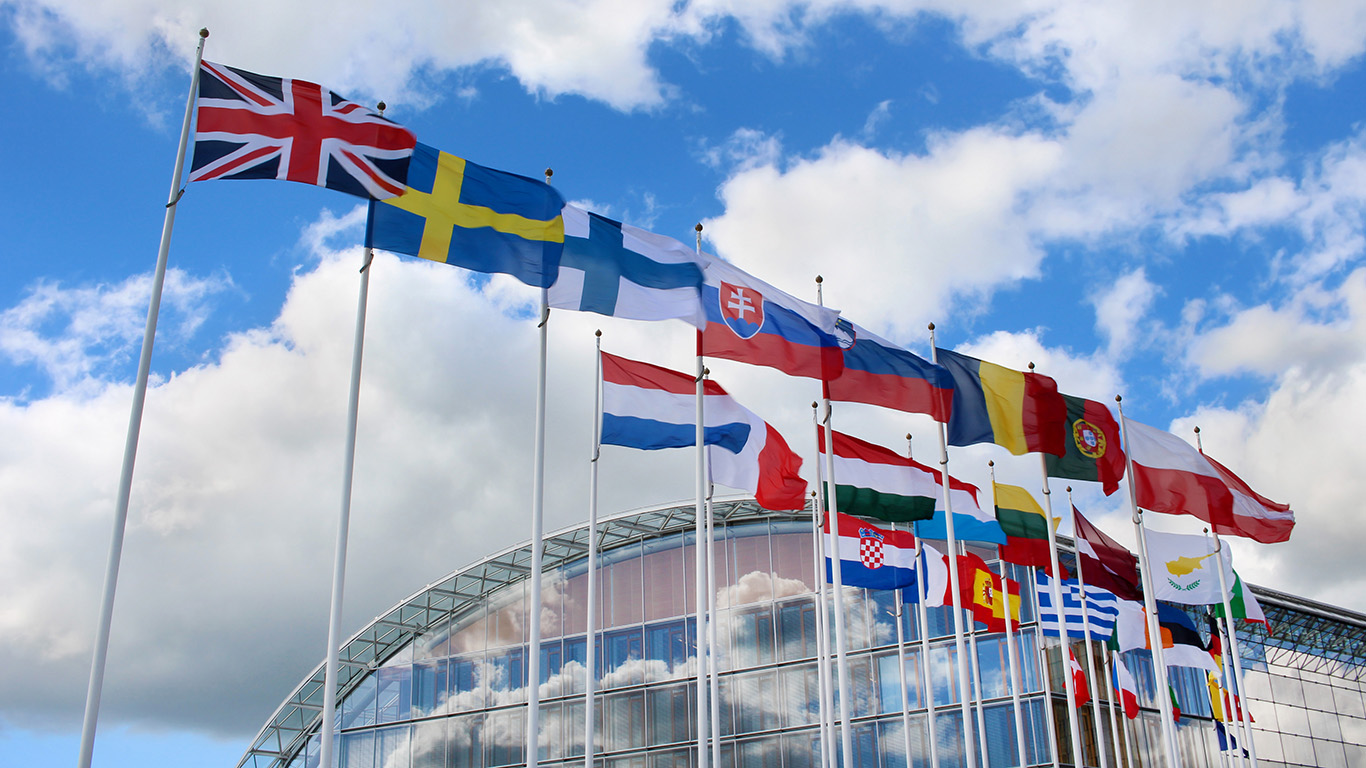
Thanks to technological advances, today’s world is smaller than ever before and people are moving around at unprecedented rates. According to recent United Nations estimates, the world has at any given time more than 230 million “international migrants,” defined as people who have lived at least a year outside their country of origin.
This diverse group includes war refugees, undocumented migrants, retirees, business executives, and foreign-born spouses. Even in a prosperous country like the United States, citizens sometimes discover they can earn better salaries and job satisfaction abroad, especially in industries where stress and low pay are common — these are the worst jobs in America.
There are plenty of reasons for people to adopt the expatriate lifestyle. They might find jobs that pay less, but offer better work-life balance, plenty of leisure activities and a welcoming local culture such as in these most welcoming countries for expats.
In other cases, people choose to relocate temporarily because an expat job offers higher pay and career advancement. Even when the motivation to live abroad is purely based on work, different countries offer different benefits and challenges.
The latest survey by InterNations, a Munich-based global expat networking services provider, titled “Expat Insider 2018: The World Through Expat Eyes,” shows that the best countries in which to work abroad fall into different categories. Countries like China and Saudi Arabia offer higher salaries but lower qualities of life, while emerging economies like Thailand and Ecuador offer better work-life balance and lower cost of living, but also less pay and job security.
The following is a list of the 25 best countries for expatriate workers. The survey population includes employees on corporate assignment and people working and living abroad for other reasons. It largely reflects the views of expats with university degrees. More than half of the respondents were over the age of 41.
Click here for the 25 best countries for working abroad.
Methodology
The source for the top 25 countries or territories for working abroad is part of the broader annual Expat Insider online survey by InterNations, a Munich-based global expat networking services provider. The survey was conducted from February 15 to March 7, 2018.
The survey collected responses from 18,135 expatriates of 178 nationalities living in 187 countries or territories. Respondents were asked to rate up to 48 factors regarding various aspects of living and working abroad — from quality of healthcare to job satisfaction — on a scale of one to seven. Those results were bundled into 17 subcategories and five topical indices: Quality of Life, Ease of Settling In, Working Abroad, Personal Finance and Family Life.
This list focuses only on the Working Abroad indices, which includes three subcategories: Career Prospects & Satisfaction, Work & Leisure, and Economy & Job Security.

25. Thailand
This Southeast Asian country makes it to our list thanks to high praise for its work-life balance. Other areas where Thailand shines include its leisure options, low cost of living, comfortable compensation, and general friendliness. As a developing country, Thailand ranks about average for job security and prospects, cost of childcare and quality of education.
[in-text-ad]
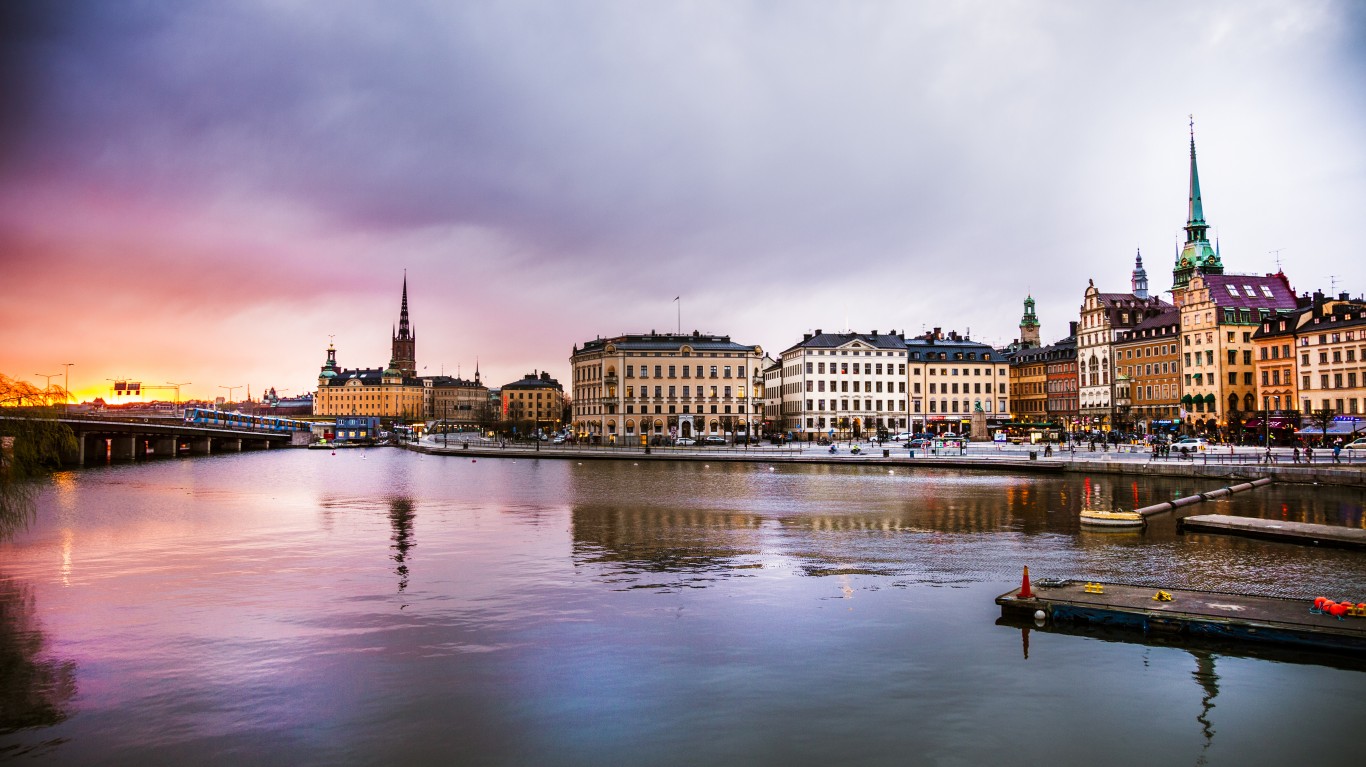
24. Sweden
Expat satisfaction around career prospects and job security in Sweden saw noticeable declines last year, pulling the Scandinavian country down to 46th place from 22nd place a year earlier in the overall ranking of best countries for expats. The country ranks 24th in the working abroad category, buoyed by strong job security but anchored by more limited career prospects and satisfaction. Like its Nordic neighbors, Sweden gets high marks for family life, especially childcare and childhood education.

23. China
China’s economy has been slowing, giving expats fewer reasons to relocate to the world’s soon-to-be-largest consumer market. The country is among the top 10 for personal finance, with about 70% of respondents to this survey saying their compensation more than covers their cost of living, which is more than 20 percentage points above the global average. But the financial advantages to working in mainland China as an expat come with costs, namely the country’s surveillance-state mentality, language barriers, and the challenges to settling in.

22. Israel
Israel made a considerable jump from 44th place in 2017 in the working abroad category, thanks to improvements in quality of life issues like health and well-being, leisure options, and digital infrastructure. The country is among the top 20 for career prospects and job security, but 41st for work-life balance. Getting by without local language skills is easy, too, and the ease of settling in has improved considerably. In fact, Israel is among the countries that showed the best improvements from 2017 in the working abroad category.
[in-text-ad-2]

21. Mexico
Latin America’s second-largest economy is the fourth top expat destination overall in this survey. A large population of retired Americans who live there. But Mexico ranks average in terms of working abroad, with high marks for career prospects offset by lower rankings for work-life balance and job security. Mexico is, however, an easy place to settle in and it ranks first or second for overall friendliness, personal happiness and leisure options. Personal safety is an issue, however, with Mexico ranking 57th on the list for security.
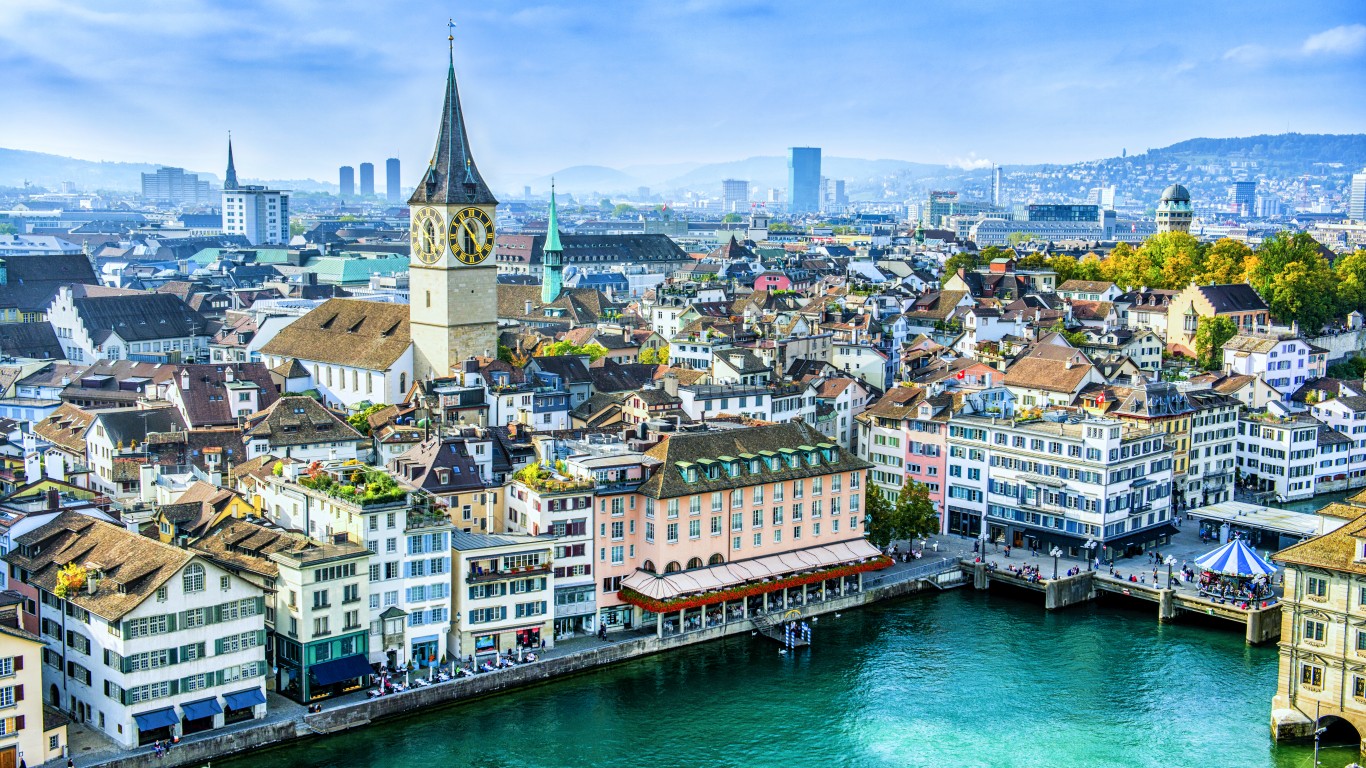
20. Switzerland
This expat hub fell last year in the overall ranking of best expat destinations, to 47th place from 27th. Expensive and bureaucratic, Switzerland ranks poorly in cost of living and ease of settling in. The European country still ranks in the top 10 for quality of life but slipped to 20th place (form 13th) in work-related categories. Expats also say they generally do not feel at home in the local culture and find it difficult to make local friends.
[in-text-ad]

19. Austria
Austria received remarkable ratings for overall family life, making it second only to Finland in the 2018 rankings in this category. It’s also the top destination for health and well being and it’s among the top 10 for transportation services. But like other European countries, it can be difficult to find expat work, and that work can be less satisfying; it ranks 43rd in career prospects and 30th in work-life balance. It does, however, rank high (11th place) in job security.
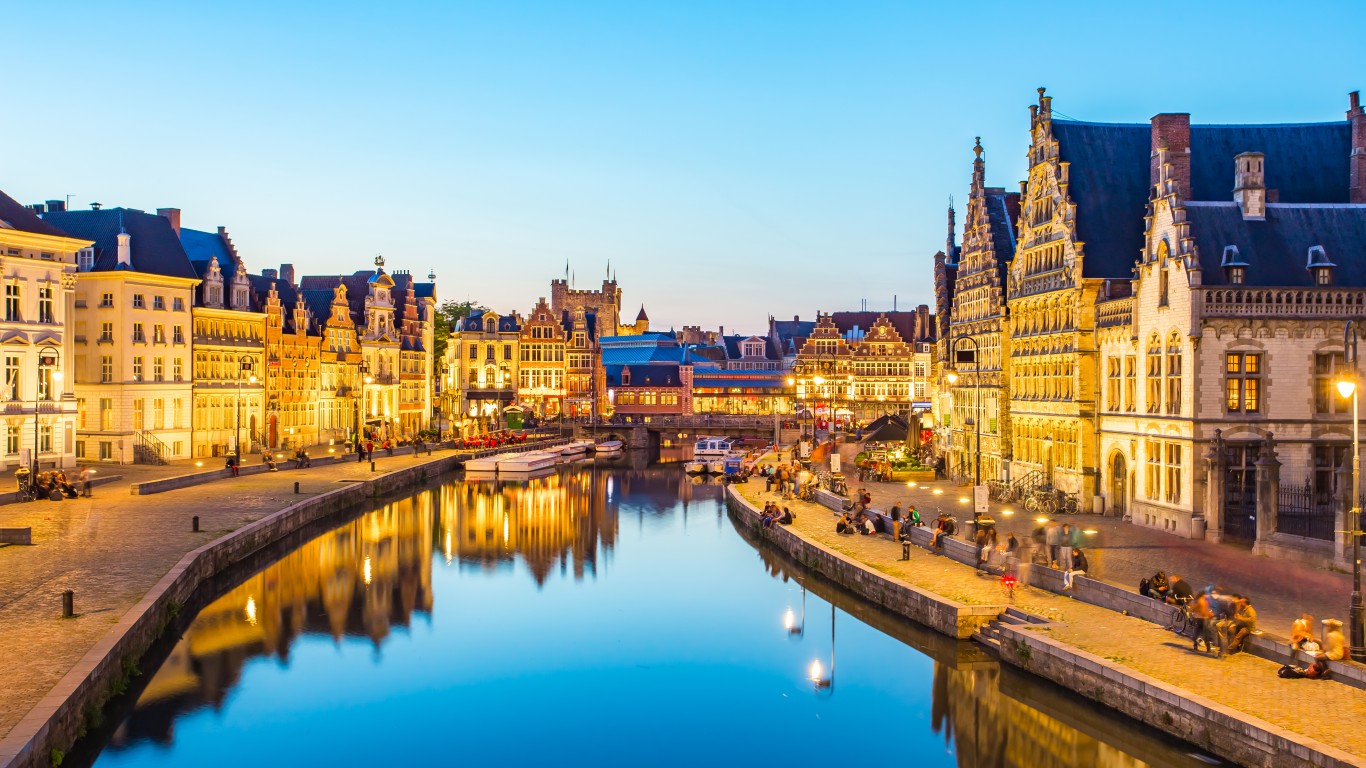
18. Belgium
Belgium ranks below three of its neighbors that are considered in this survey to be better places to work as an expat — the Netherlands, Germany and Luxembourg. It also ranks underwhelmingly in quality of life (39th place) and ease of settling in (45th place). But it’s among the top 10 for childcare availability and cost, and for family life overall.
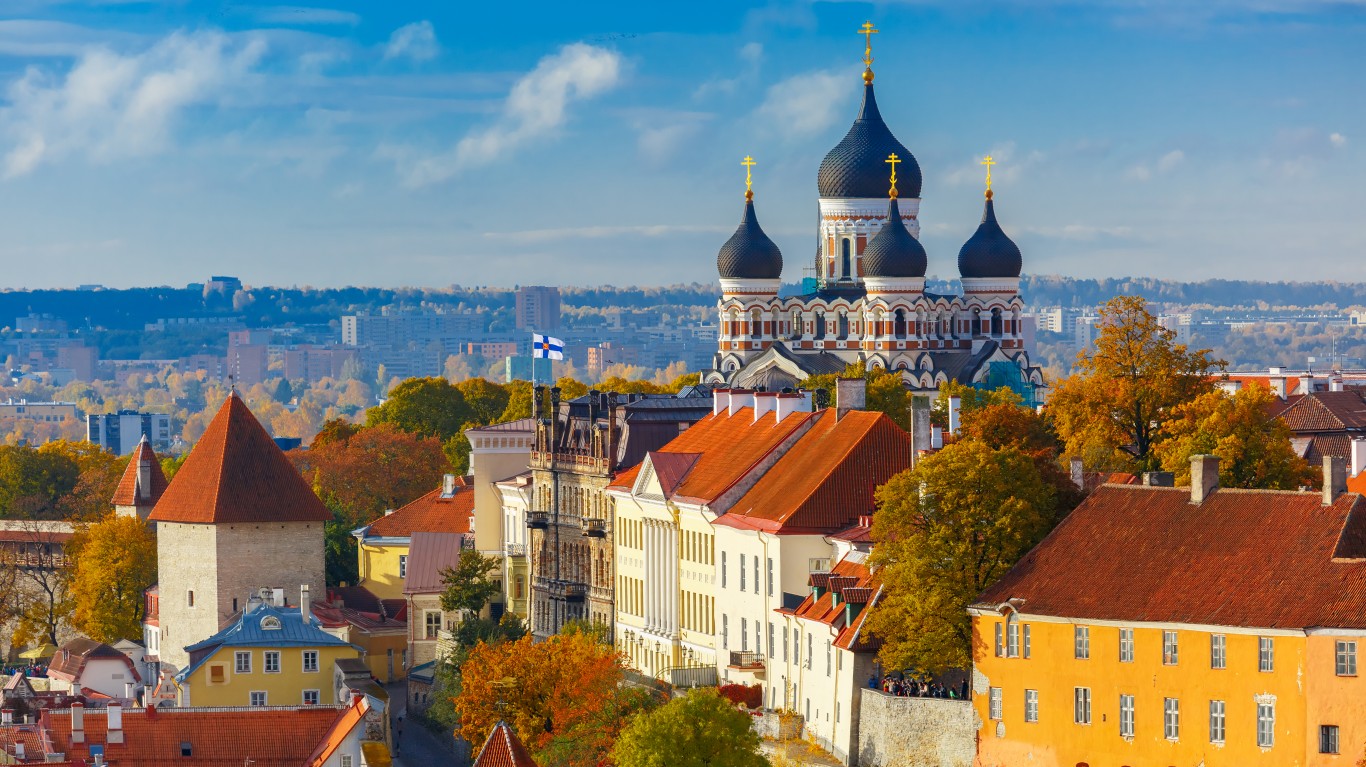
17. Estonia
This Baltic state is one of the few newcomers to the list of best countries for expats and ranks as the 27th best destination overall for expats, thanks in part to improved economic conditions since 2015. Although it ranks modestly for job security (29th place), it falls within the top 20 for career prospects and work-life balance. The country’s strong embrace of new technology places it at the top of the list of most digitally connected countries as it has effectively eliminated bureaucratic hurdles, expats said in the survey. Estonia also received high praise for the quality of its education and childcare costs.
[in-text-ad-2]
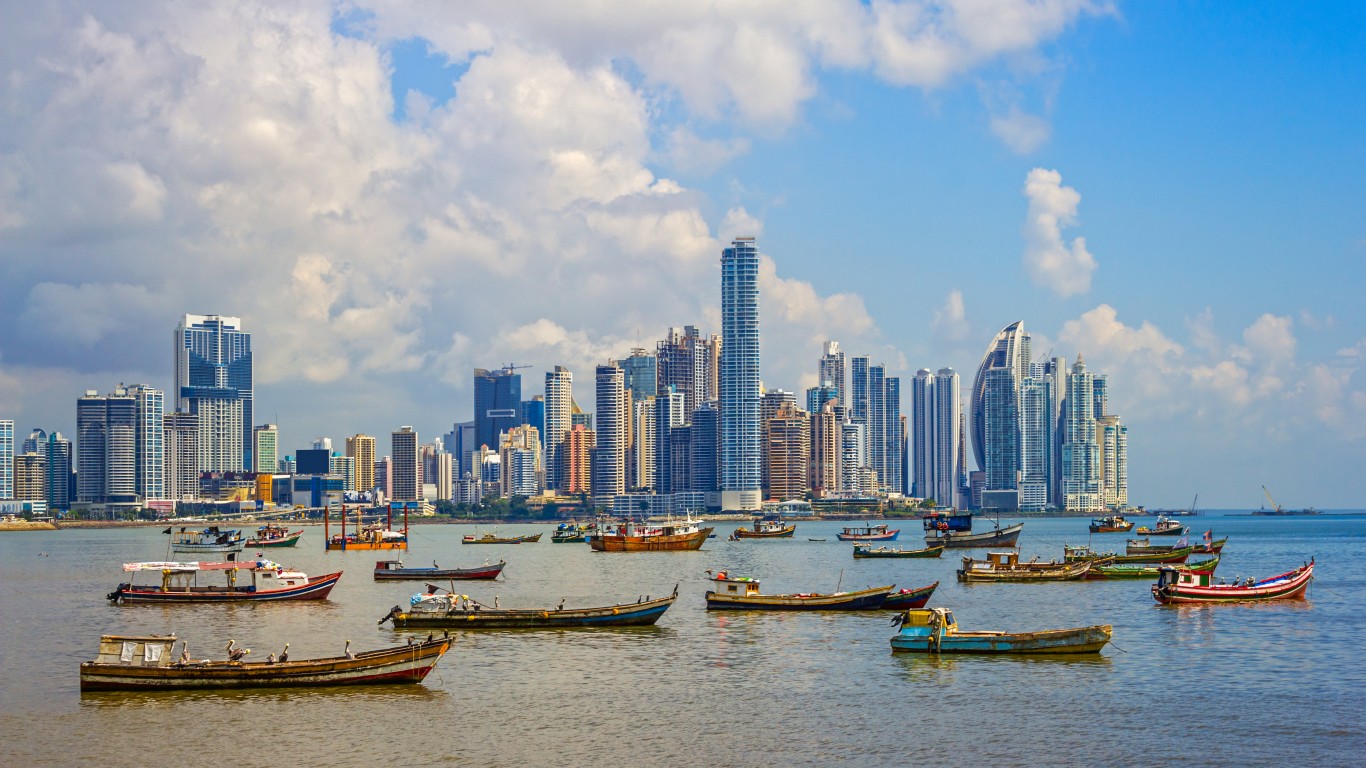
16. Panama
One of the three Latin American countries ranked among the top 25 places for working expats, Panama also had one of the most noticeable shifts in its ranking for overall best destination for expats, jumping to 13th place in 2018 from 36th in 2017. The Central American country is in the top 10 for career prospects and for having a low barrier for language (English is commonly spoken) and in the top 20 for job security and personal happiness.

15. Canada
The northern neighbor and second-largest trading partner of the United States came into the top 10 last year in health and well-being, safety and security, digital infrastructure, and is among the top 20 for career work-life balance and job security. Canada received high marks for overall quality of life, despite lower marks for leisure options (perhaps owing to its long cold season) and transportation infrastructure. It’s also not a cheap place to live compared to less-developed countries on this list.
[in-text-ad]

14. Singapore
This Southeast Asian city-state prides itself on being a bridge of cultures, linking not only East Asia with South Asia but acting as a major global business and travel hub. Expats give Singapore high marks for career prospects and job security, where it ranks among the top 10, but lower marks for work-life balance, where it places 43rd. It also ranks high for availability of childcare, quality of education, and family well-being. In addition, Singapore’s advanced infrastructure helps it get high marks for for transportation and digital services. Language is also a low barrier; English, Malay, Mandarin and Tamil are all widely spoken.

13. Australia
Australia is one of the biggest winners in the 2018 survey. After falling out of the top 10 overall best destinations for expats a year earlier and landing in 34th place, Australia has rebounded thanks to high marks for overall quality of life — particularly for quality of education, family well-being and leisure activity. For work, the country received its highest mark (11th place) for work-life balance, but it also ranked in the top 20 for career prospects and job security.

12. Malta
This tiny Mediterranean island country has long been a popular expat destination, especially for the British, and it ranks relatively high in career prospects, work-life balance and job security. But Malta fell to 38th place from 19th in the survey’s Quality of Life index as the political situation in the country is perceived by expats to be getting worse. The high-profile, unsolved assassination in October 2017 of investigative journalist and anti-corruption critic Daphne Caruana Galizia, certainly hasn’t helped this perception.
[in-text-ad-2]

11. Ecuador
Ecuador ranks as the top most expat-friendly country in which to work in Latin America, ahead of the other two countries in the region — Panama and Mexico — that made it to this list. Ecuador bounced back 22 spots since 2017 when the country was still recovering from a major 2016 earthquake. The country is among the top five in this survey for work-life balance, career opportunities and cost of living, but it ranks significantly worse in job security.

10. New Zealand
This island nation 1,200 miles east of Australia is the 11th top overall destination for expats in this global survey. It ranks within the top 10 countries for a good work-life balance, family well-being, and availability of childcare services, and it’s among the top five countries for general safety and security and digital infrastructure. It also ranks fairly high for job security and career prospects. It ranks lower for expats’ ability to make friends and having English-language skills is fairly important.
[in-text-ad]

9. Luxembourg
If you can land an expat job in this tiny Western European country then you’re set. Luxembourg ranks 1st in job security, as well as general safety and security. But the country gets significantly lower marks for career prospects, work-life balance, and friendliness. Also, if you work in Luxembourg, it helps greatly if you speak French or German fluently, as it ranks 31st in terms of ease of dealing with foreign language barriers.
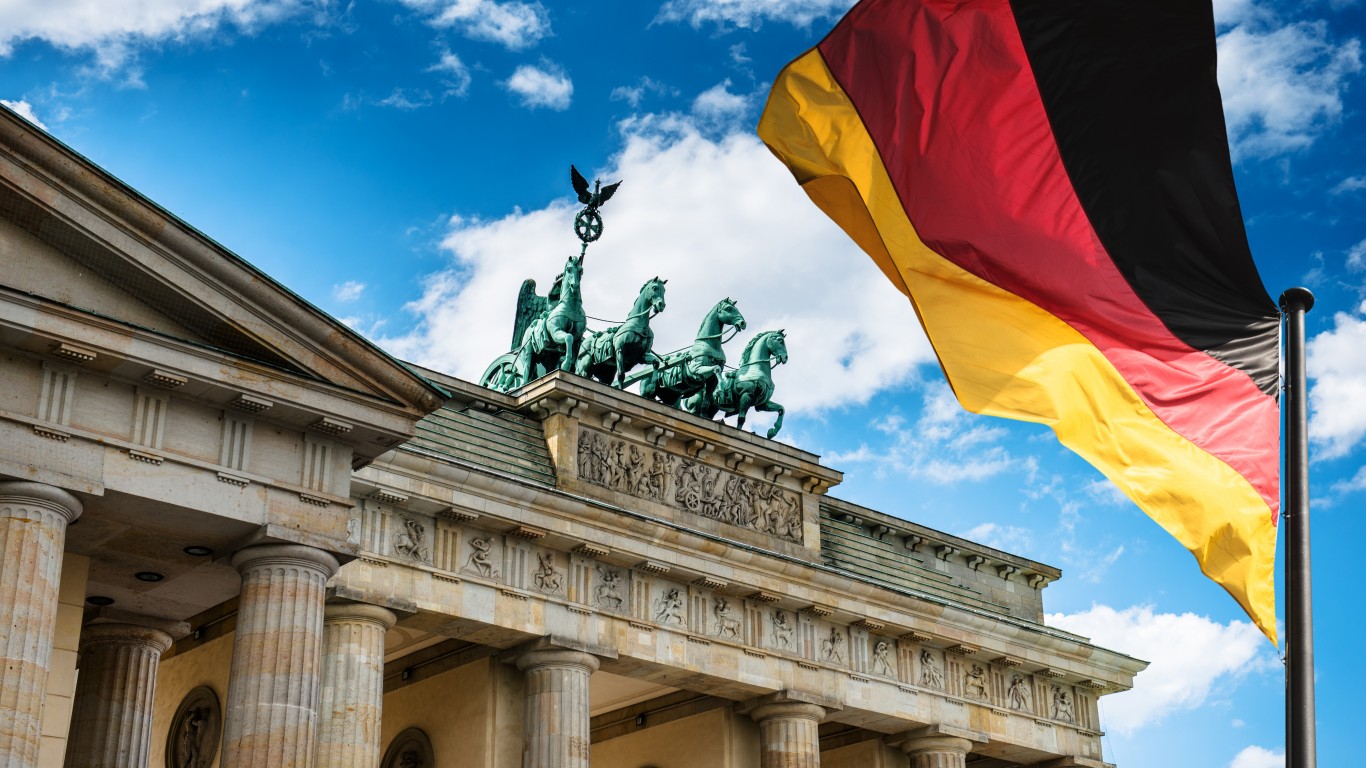
8. Germany
Germany ranks as the most common country of residence for expats, ahead of the United States, and also had the highest number of respondents (more than 1,600) to this survey. Germany received a considerable boost in this ranking of the best countries for working abroad because of its economy and the sense of job security among expats. But the country ranks lower for the ability of expats to find jobs and its work-life balance. The only subcategories in which Germany ranks among the top 10 countries is in transportation infrastructure and the low cost of childcare and education.

7. Vietnam
This rapidly developing Southeast Asian country ranks in second place for career prospects and satisfaction and is in the top five for good work-life balance. Seventy-one percent of respondents rated career prospects positively. However, the country stands out for having significantly more male respondents (63%) than women. What pulled Vietnam down in terms of working abroad was the state of the economy and job security, which ranked 28th in this latest survey. Vietnam placed within the top 10 countries in this survey for friendliness and personal happiness.
[in-text-ad-2]
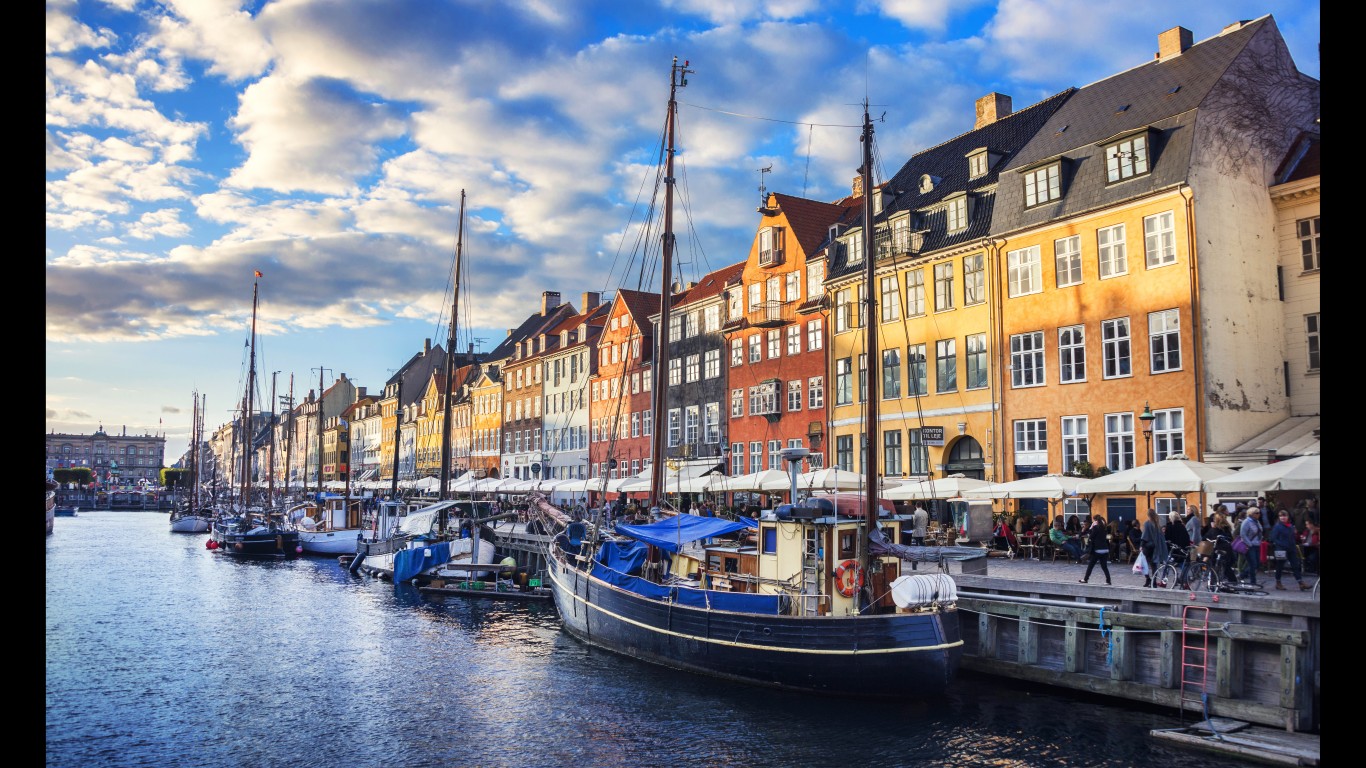
6. Denmark
Denmark ranks lower than its Scandinavian neighbor Norway in terms of working abroad, and like other European countries ranks low in career prospects because of the high educational attainment of its native population. But if you can land an expat job in Denmark, survey respondents placed the country among the top five best for childcare and education costs, quality of overall education, healthcare, safety and digital life (quality of internet and use of new technologies like e-payments). Denmark also ranks first for work-life balance.

5. Netherlands
The Netherlands ranks in this survey as the eighth most common country for expat residence. It’s among the top five for job security and in the top 10 for work-life balance. But like other European countries, it can be difficult to find a job in Holland as a foreign national, so the country ranks relatively low in career prospects. If you can land an expat job in the Netherlands, then you’ll enjoy some of the world’s best transportation infrastructure and quality of education.
[in-text-ad]

4. Norway
This highly developed Scandinavian country ranks high for work-life balance, economy and job security, but low for career prospects and job satisfaction, mainly because it’s not easy to find work as an expat. (Having English-language skills, for example, is essentially worthless as so many locals speak it.) Norway ranks among the top five countries on the survey for health, safety and digital life, a category that includes the quality of internet infrastructure and the utilization of newer technologies such as digital payments. Norway ranks lower on other non-work-related categories compared to its Scandinavian neighbors.

3. Czech Republic
Czechia, as the country is also known, fell from the top spot on this list in 2017 thanks to more positive marks for Taiwan and Bahrain in 2018. The European country ranked high for job security, with 71% of respondents rating that factor favorably compared to the survey’s total average of 59%. A combination of job opportunities and low cost of living gives Czechia a competitive edge. The country also ranks among the top five in travel and transport infrastructure, along with family well-being, a category that includes child safety.

2. Taiwan
Taiwan advanced to second place on this list, climbing from 12th place in 2016 and 2017, after receiving higher marks particularly for career prospects and job satisfaction. About three-fourths of polled expats reported they were “completely” or “generally” satisfied with their job security and gave their work-life balance the highest rating, in part because expats in Taiwan work fewer hours per week full-time compared to the survey’s global average: 39.9 hours vs. 44.0 hours. Taiwan also ranks within the top five for overall friendliness and personal happiness.
[in-text-ad-2]
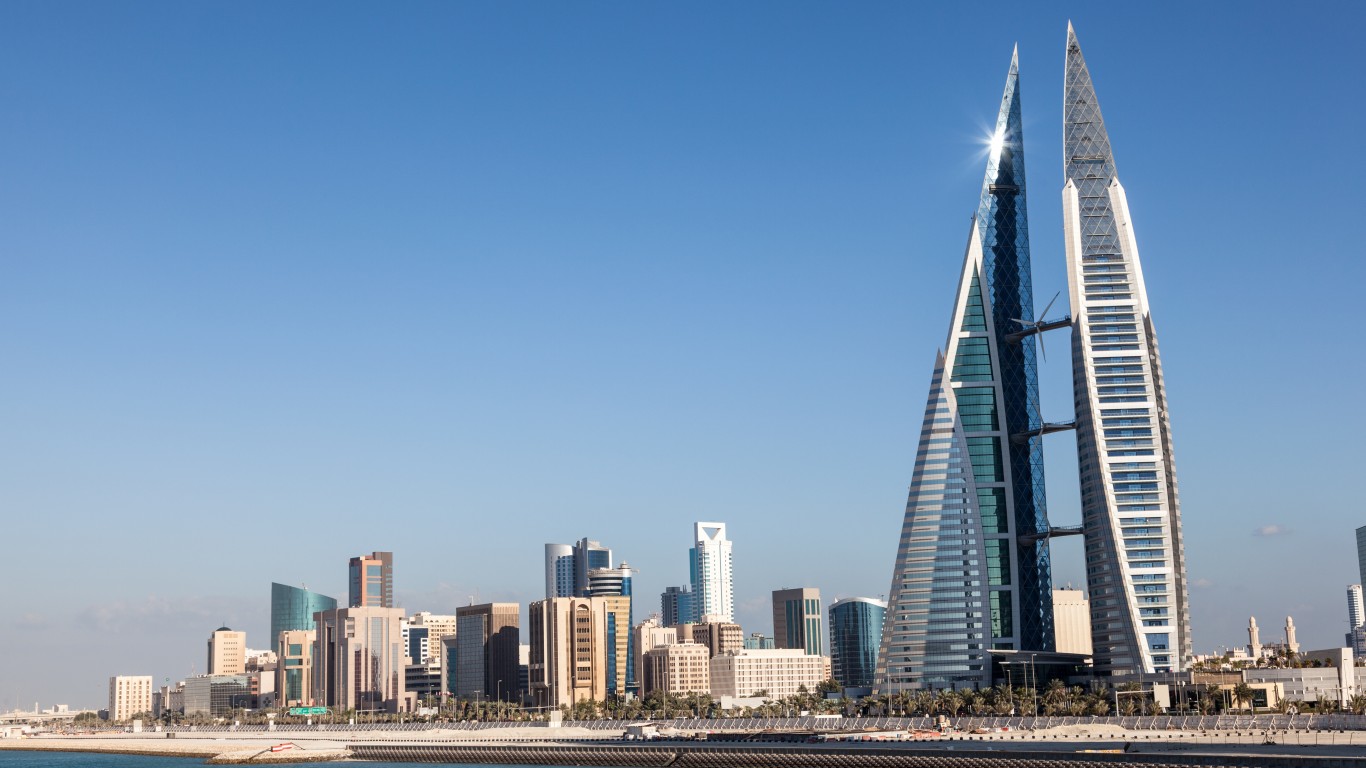
1. Bahrain
The tiny island monarchy in the Arabian Gulf moved up to first place from third place in 2017, and from 37th place in the first Expat Survey in 2014. Thirty percent of foreign workers who responded to the survey say they’re “completely satisfied” with their career prospects in Bahrain, more than twice the global average, despite working long hours: 45.2 hours per week for full time. The country also ranks first for ease of settling in, a category that includes being made to feel at home and the ease of getting by without local-language skills.
Thank you for reading! Have some feedback for us?
Contact the 24/7 Wall St. editorial team.
 24/7 Wall St.
24/7 Wall St.


